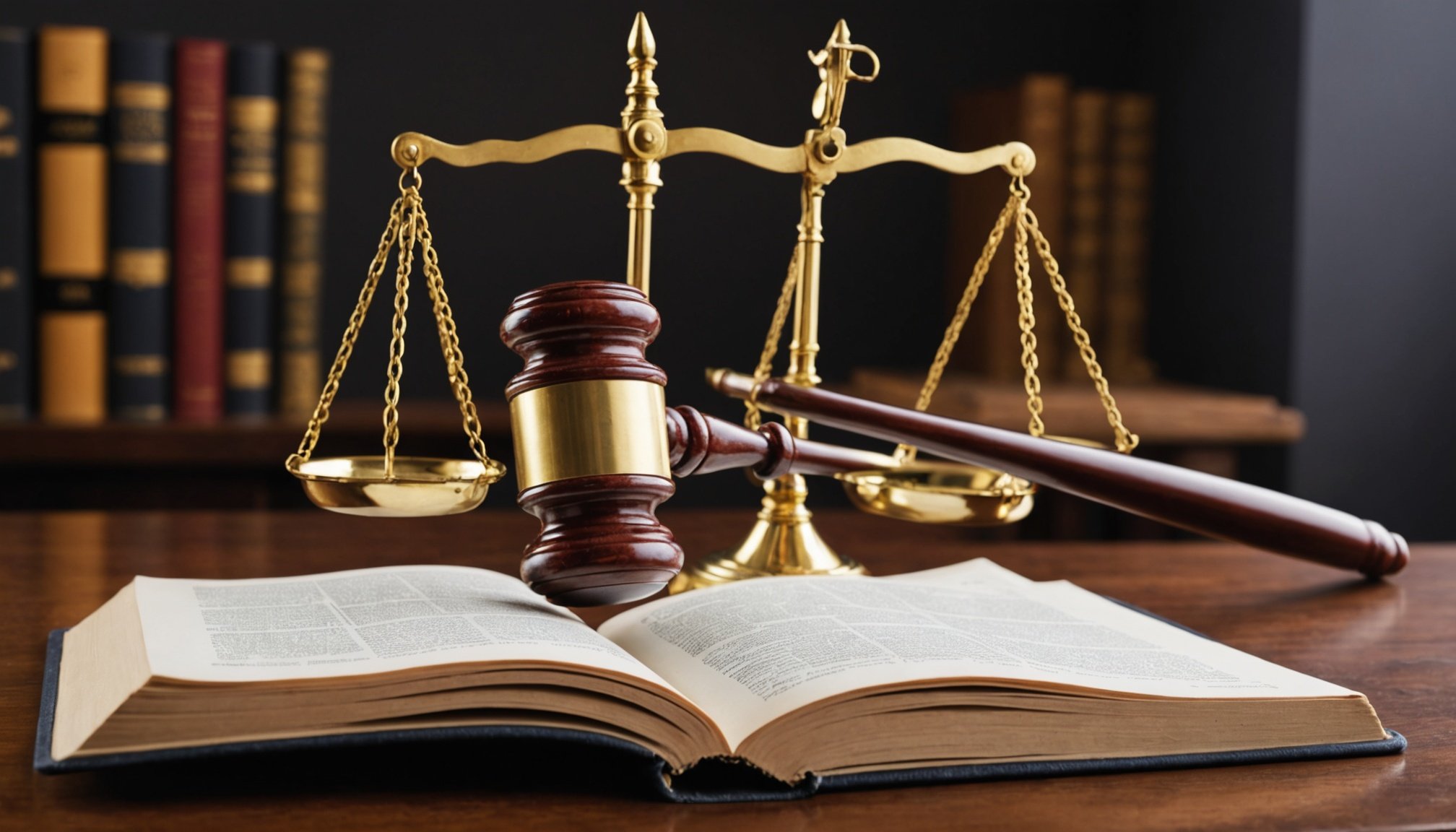Overview of Intellectual Property Rights in the UK
Intellectual property rights in the UK are legal protections granted to creators and inventors, recognising their ownership of works or inventions. These rights are paramount in protecting the monetary and intrinsic value of intellectual creations.
In the UK, IP rights encompass several types, each with unique rules and significance:
Topic to read : Essential Legal Guidance for UK Businesses Navigating Renewable Energy Initiatives
-
Patents: Provide protection for technical inventions, granting exclusive usage rights for a set period. They play a crucial role in encouraging innovation by ensuring inventors can reap the benefits of their creations without fear of immediate imitation.
-
Trademarks: Protect brand names and logos against unauthorized use, maintaining brand identity and market presence. This is significant for businesses seeking to build lasting consumer trust.
Have you seen this : Navigating EU Market Access: Essential Legal Insights for UK Businesses to Thrive
-
Copyrights: Offer protection for creative works such as art, literature, and music. This ensures creators can control and benefit from their works, thus fostering a vibrant cultural environment.
-
Trade secrets: Safeguard confidential business information that provides a competitive edge, without formal registration processes.
Collectively, these intellectual property rights form a framework that safeguards innovations, promoting creativity and economic growth within the UK.
Types of Intellectual Property Rights and Their Mechanisms
Understanding the mechanisms behind intellectual property rights (IPR) is crucial for leveraging their full potential. Below, we delve into the frameworks established under UK law.
Patents and Their Protection
Patent law safeguards technical inventions by granting exclusive rights for typically 20 years. The process involves a detailed application illustrating how the invention works, highlighting its novelty and inventive step. Legal fees and paperwork can be extensive, but the protection afforded by patents is invaluable in fostering innovation.
Trademarks and Brand Protection
Trademark law protects symbols, names, and slogans used to distinguish goods or services. Registering a trademark involves demonstrating distinctiveness, not misleadingly similar to existing marks. Key means include opposition proceedings for dispute resolution. Properly maintained, trademarks can last indefinitely, crucial for brand consistency and consumer trust.
Copyrights in Creative Works
Copyright law supports creators by safeguarding original literary, artistic, and musical works limited by time yet distinguished by rights like reproduction or adaptation. While registration is optional, it offers prima facie evidence in disputes. Exceptions like fair use prevent monopolization, balancing creators’ benefits with public interest.
These mechanisms serve to uphold the principles of UK law, enhancing the creative and competitive landscape for businesses and individuals alike.
Practical Strategies for Protecting Innovations
Ensuring the safeguarding of innovations under UK law necessitates a robust approach. One effective strategy is conducting regular IP audits. These audits help businesses identify valuable intellectual property rights and ensure they are properly secured. An audit can highlight any existing inadequacies in protection while uncovering potential infringements by or against the business.
Developing a comprehensive IP strategy is also crucial. This involves not only assessing current IP assets but also planning for their future exploitation. Such a strategy assists in aligning IP management with business goals, ensuring that innovation is strategically utilised for maximum benefit. Consideration should be made regarding international protection and the licensing of technologies, aiming for a cohesive approach across jurisdictions.
Collaboration with legal professionals is vital to tailor advice to specific business needs. Experts in the field can offer insights into potential compliance issues and draft necessary agreements to protect and exploit IP rights effectively. Legal professionals can further assist in navigating complex regulatory environments, ensuring adherence to all pertinent UK law requirements and avoiding costly litigation.
These strategies collectively provide a framework for effectively protecting innovations, ensuring businesses can thrive with confidence in their intellectual property endeavours.
Case Studies of Intellectual Property Litigation
Intellectual property litigation serves as a critical arena for resolving disputes and shaping legal precedents that influence future practices. Understanding landmark cases in the UK illuminates how legal frameworks are applied and interpreted.
Successful Patent Enforcement Cases
Patent enforcement cases often provide crucial insights into the robustness of the patent law. Examining notable cases, such as those where innovative companies defended their patents successfully, highlights the importance of meticulous patent documentation and strategic enforcement. These cases underline the necessity for businesses to ensure their inventions meet patentability criteria and maintain comprehensive records that demonstrate the novelty and utility of their innovations. Lessons from these cases can guide firms in fortifying their patent protection strategies, ensuring they can effectively fend off infringement attempts and preserve their competitive edge.
Trademark Disputes and Resolutions
Trademark disputes frequently revolve around brand identity issues and unauthorized use. Notable cases typically involve competing claims over trademark law and highlight the significance of proactive brand monitoring and dispute resolution measures. Judicial trends in handling these disputes reveal an evolution towards mediation and arbitration, promoting more streamlined and less adversarial outcomes. Businesses can draw from these case studies to implement best practices in trademark management, such as diligent monitoring and registering of trademarks to preempt conflicts and protect brand integrity.
Enforcement of Intellectual Property Rights
Understanding the enforcement mechanisms for intellectual property rights (IP) is crucial in protecting innovations. Enforcement typically begins with a cease and desist letter, a formal request to stop infringing activities. This approach often resolves disputes before escalating to litigation, indicating a preference for amicable solutions where possible.
Infringement resolution can also involve alternative dispute resolution (ADR) methods, such as mediation or arbitration. These methods are preferred for their efficiency and reduced costs compared to court proceedings. They provide a more controlled environment where both parties can negotiate agreeable solutions, making ADR a significant tool for effectively resolving IP conflicts.
When litigation is necessary, legal remedies include injunctions, which prevent further infringement, and financial compensation for damages incurred. Building a robust IP litigation strategy is essential to success in such cases. This involves meticulous evidence gathering, thorough documentation, and leveraging expert witnesses who can substantiate claims regarding the IP’s originality and the infringement’s impact.
These mechanisms ensure that those holding IP rights in the UK can enforce their protections effectively. By employing these methods, individuals and businesses can safeguard their intellectual assets, maintaining a competitive edge and guaranteeing the rightful benefits of their creative endeavors.
Resources and Further Assistance
Navigating intellectual property rights in the UK can be complex, and leveraging available resources is vital. The UK provides several governmental agencies and IP offices to assist individuals and businesses. The UK Intellectual Property Office (IPO) is pivotal, offering guidance on patents, trademarks, and copyrights. Their official guidelines and online services streamline application processes and provide insights into UK law compliance.
Professional associations serve as an invaluable support network. Organisations like the Chartered Institute of Patent Attorneys (CIPA) or the Institute of Trademark Attorneys (ITMA) offer valuable resources, education, and connections to legal experts specialising in patent law, trademark law, and copyright law. Engaging with these bodies enhances understanding and improves strategy for protecting innovations.
When more specialised assistance is required, consulting with legal practitioners skilled in UK law is essential. Recommended firms, such as Marks & Clerk or Fieldfisher, provide comprehensive advice, from registration to enforcement, guiding clients through complex IP legal processes. These resources and services ensure that businesses and individuals can robustly protect their intellectual assets while fulfilling legal obligations and maximising the potential of their innovations.
Legal Requirements and Processes in IP Law
Navigating the legal requirements for intellectual property (IP) protection involves understanding various UK law regulations and processes. Proper documentation and precise filing practices are foundational to securing and enforcing IP rights. Each type of intellectual property entails specific forms and details that must be meticulously prepared to meet the criteria for protection.
Timelines and deadlines are critical in IP legal processes. The journey from application to approval can be extensive. For example, obtaining a patent can take several years, with strict deadlines for responses and potential amendments. Missing these deadlines can result in applications being dismissed or rights inadvertently forfeited, underscoring the importance of vigilance.
Regulatory bodies like the UK Intellectual Property Office (IPO) play a central role in processing and enforcing IP rights. They are tasked with overseeing applications, maintaining registers, and ensuring compliance with IP laws. Engaging with the IPO not only assists in navigating UK law but also offers insights into global frameworks, especially when seeking international protection.
Understanding these processes and requirements enables individuals and businesses to strategically manage their IP assets, ensuring robust protection and compliance across jurisdictions.







